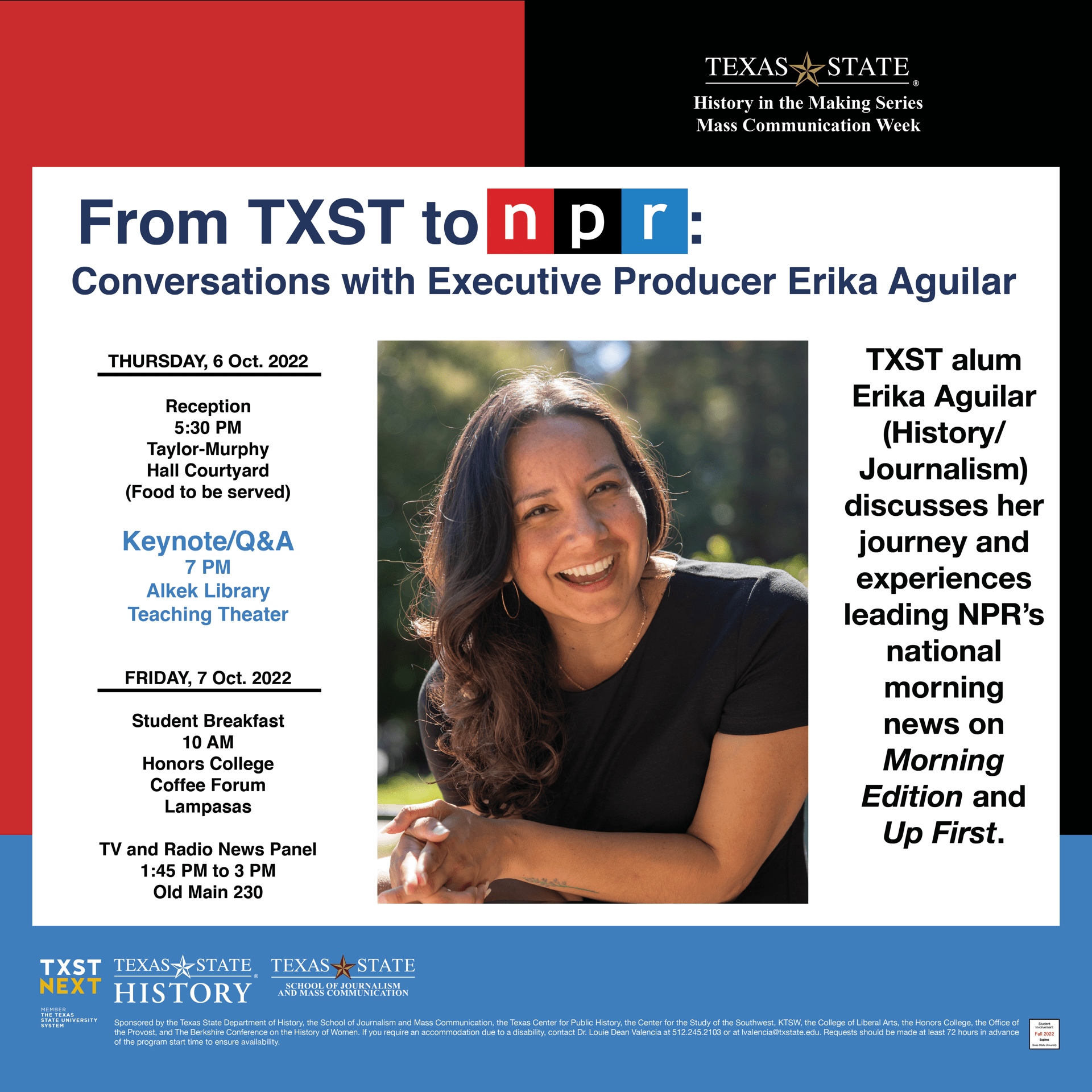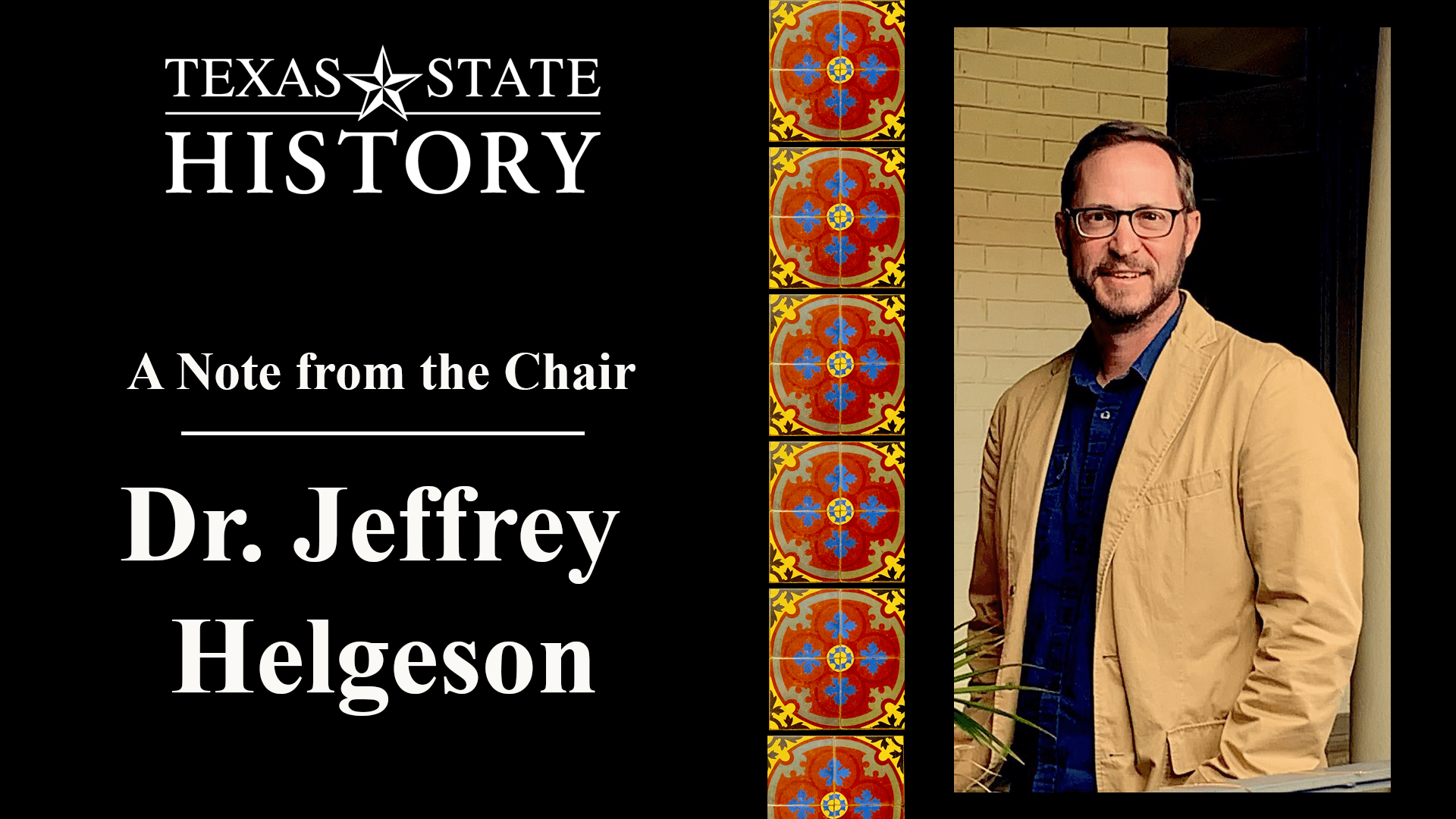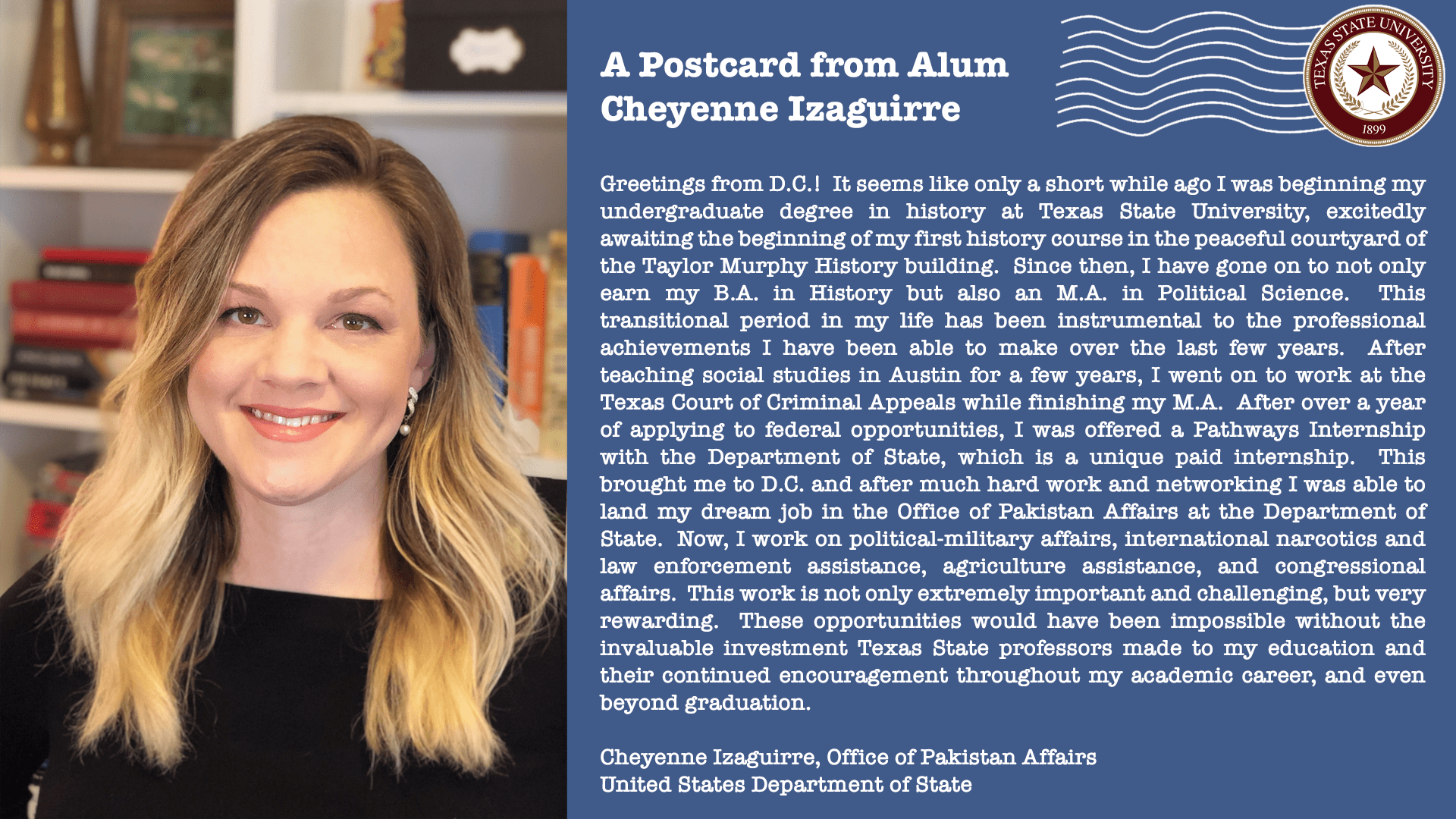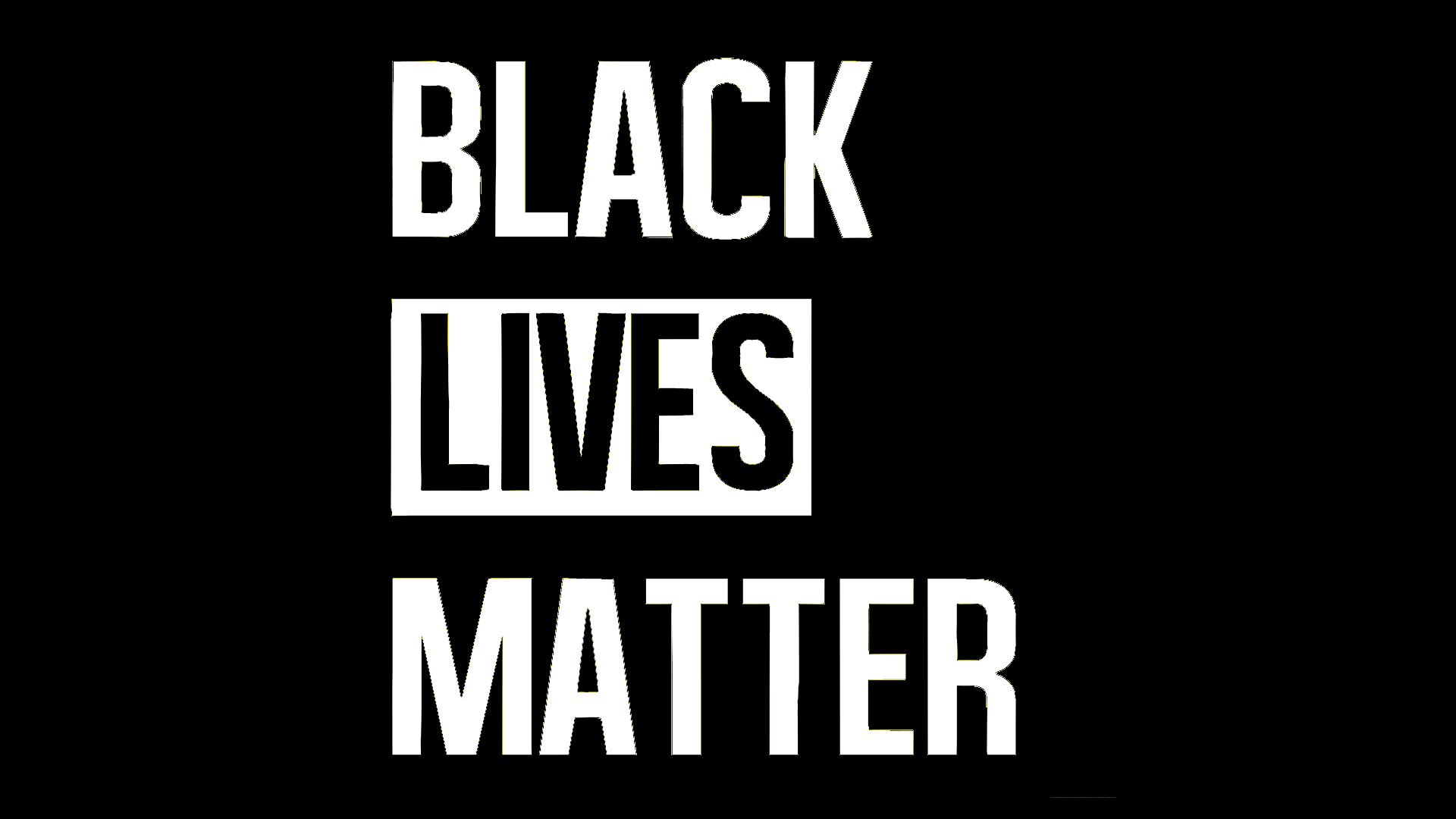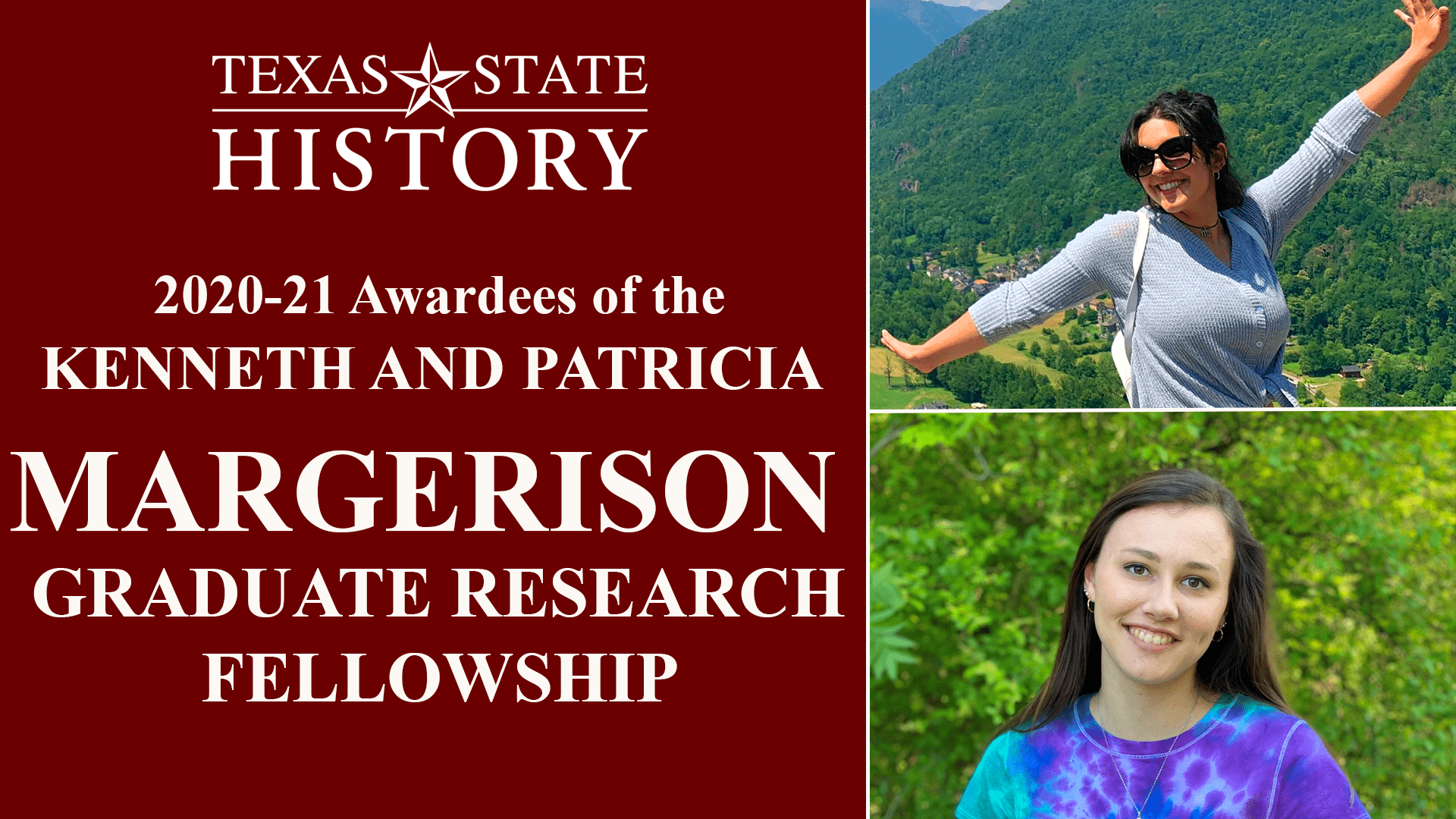
The Texas State University Department of History is proud to announce this year’s awardees of the Kenneth and Patricia Margerison Graduate Research Fellowship in History. The Fellowship provides support to full-time graduate students enrolled in the master’s degree program in history. Recipients are awarded funds to fully cover graduate tuition and fees for the spring and fall semesters as well as research support—qualifying for in-state tuition. The Graduate Studies Committee considers all first-year students as well as continuing students who demonstrate great promise as historians. In addition to the fellowship, students may also be offered a graduate Instructional Assistantship (IA), which includes a monthly salary.
Please visit the History Department Scholarships website for specific details and requirements.
Learn more about Railey Tassin (top photo) and Madison Otte (bottom photo), this year’s recipients of this prestigious fellowship:
Railey Tassin is a first-year Texas State graduate student pursuing a Master’s in Public History. Railey graduated summa cum laude from Texas Christian University in May 2020 with a B.A. in History, minor in French, and emphasis in Comparative Race and Ethnic Studies. She has experience interning at the Houston Museum of Natural Science and studying abroad in Toulouse, France. After completing her degree, Railey would love to work in a museum dedicated to documenting diversity and engaging the general public with the history of underrepresented groups.
How do you see this Margerison Fellowship helping you in your studies?
Railey: The financial aid provided by the Margerison Fellowship guarantees that I will be able to begin my graduate education completely focused on excelling in my personal studies and my duties as an Instructional Assistant. As a first-generation student, I strongly recognize the significance of generous financial support in helping students reach their highest potential. Receiving this fellowship has ensured that I feel supported and valued as a student at Texas State even before having officially entered.
As an undergraduate at Texas Christian University, you studied History, and French with an emphasis in Comparative Race and Ethnic Studies, can you tell us more about your research interests, and what got you interested in it in the first place?
Railey: Since a young age, I have been fascinated by studying the actions and words of those who came before us as a way to better understand the present. I began studying French in high school to feel a closer connection to my ancestry, and I loved the idea of having a wider range of writings/sources available to me in college by knowing a second language. Taking CRES classes gave me additional knowledge in analyzing race and ethnicity and inspired me to focus my historical research on traditionally marginalized/underrepresented groups. My senior History thesis focused on the works of three Black women, Paulette Nardal, Jessie Fauset, and Gwendolyn Bennett, whose France-inspired writings contributed to a rise in race consciousness across the African diaspora throughout the twentieth century. This project allowed me to combine theories learned from CRES, French primary sources, and my historical research interests.
What are you looking forward to the most about your graduate studies at Texas State?
Railey: I am most looking forward to making meaningful connections with professors and fellow students – all of us dedicated to continuous learning and working together to adapt during this abnormal semester. I can already sense that the Texas State community will be fully encouraging and helpful in all of my endeavors and will strive to make each student feel supported. I believe the study of history is meant to be shared with others, and I am eager to have the opportunity to engage in collaborative efforts to do so during my time at Texas State.
Madison Otte is a first-year graduate student, but is not new to the Texas State campus. Madison received her bachelor’s degree in History from Texas State University with a minor in Spanish and single-field teaching certification in History for grades 7-12. Madison is working towards her master’s degree in History, and plans to write a thesis about Early Modern Spanish and Colonial History. Madison is also an Instructional Assistant, and looks forward to merging her love of History and teaching to help students this semester. After finishing her degree, Madison hopes to continue her education and one day become a professor at the university level.
How do you see this Margerison Fellowship helping you in your studies?
Madison: The recognition of my hard work through the Margerison Fellowship makes me feel even more strongly motivated to succeed in my endeavors in graduate school. I am very thankful to be able to focus on my thesis wholeheartedly, without the stress of an extra job to juggle with my courses and research.
You are interested in Early Modern Spanish and Colonial History, can you tell us more about your research interests, and what got you interested in it in the first place?
Madison: I am interested in researching the changes that occurred in the Spanish colonies in Latin America after the start of the Counter-Reformation. I am especially interested in the way this changed interactions between Spanish missionaries and the Native people they wished to convert to Catholicism. I have always been interested in Colonial History because the effects the has Old World on the New World that can still be seen today are fascinating to me. I became particularly interested in the religious effects on colonialism in the Americas during my undergraduate studies here at Texas State.
What are you looking forward to the most about your graduate studies at Texas State?
Madison: I am most looking forward to growing more as a writer as I construct my thesis. I also look forward to working with the professors in the History Department both on my research and as an Instructional Assistant. I really enjoy working with other students and using the skills I gained in my undergraduate degree as a candidate for teaching certification.
